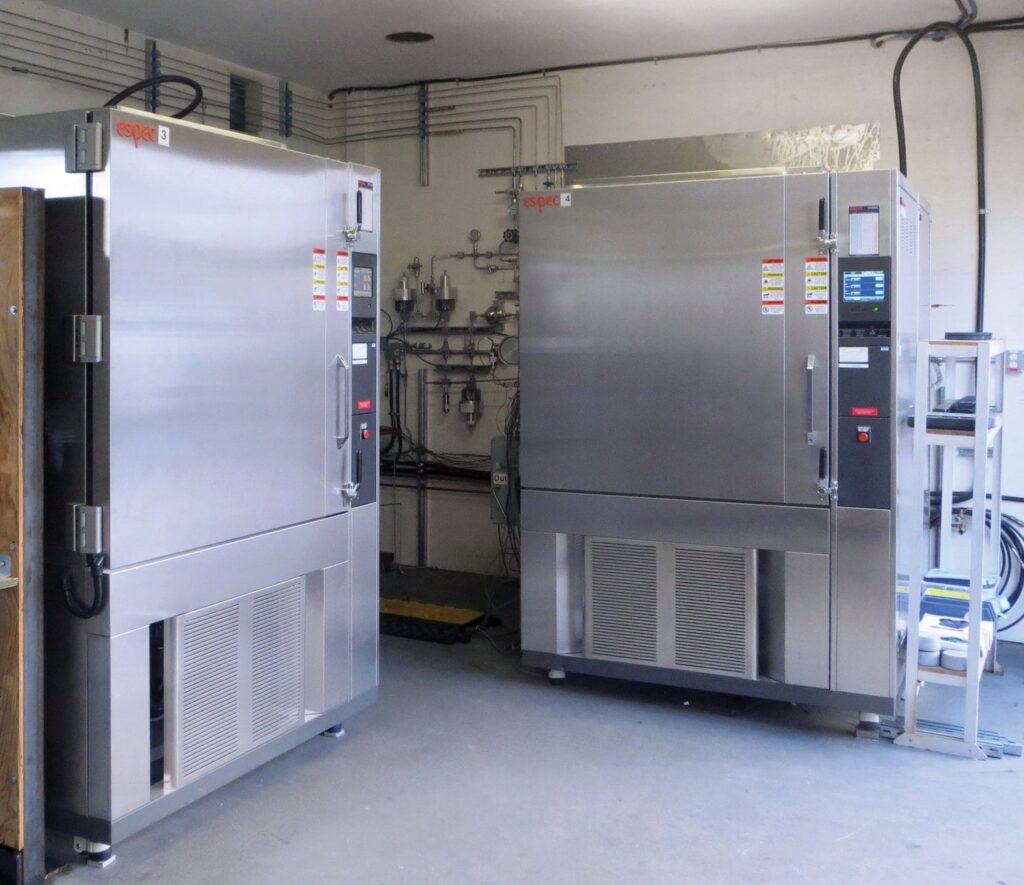
Powertech’s Advanced Transportation Component Testing Lab consists of six independently temperature- and pressure-controlled test facilities. The lab is fully automated, enabling tests to run 24 hours a day. Testing is accredited to ISO 17025.
The Component Testing Lab tests high-pressure transportation components, including solenoid valves, regulators, pressure-relief devices, check valves, manual valves, nozzles, receptacles, hoses, fittings, and sensors.
Component lab features includes:
- Hydrogen gas endurance tests up to 93 MPa
- Hydrogen gas pressure up to 140 MPa
- Nitrogen gas endurance tests up to 87.5 MPa
- Hydraulic endurance tests up to 140 MPa
- Hydraulic endurance tests of systems up to 25 litre volume
- Hydrostatic burst tests up to 500 MPa
- Five chambers each with workspace volume of 900 L, one chamber with workspace volume of 34 L
- Test chamber temperature range from -75°C to 180°C
Featured regulations and standards include:
- All hydrogen gas powered land vehicles tests, including:
- EC 79
- ECE R134 and UN GTR No. 13
- HGV 3.1, 4.4, 5.1, 4.10, HPRD1
- ISO 15500
- All hydrogen infrastructure test standards, including:
- ISO 17268, 19880
- SAE J2600
- HGV 4.4, 5.1, 4.10
- Compressed Natural Gas (CNG) tests standards, including:
- NGV 1, 3.1, 4.1, 4.2, 4.4, 4.6, PRD1
- ISO 14469
Additional testing capabilities include:
- Pre-cooled hydrogen flow test up to 200 g/s (133,400 NL/min)
- Corrosion resistance, including cyclic corrosion resistance
- Vibration resistance
- UV resistance
- Electrical tests
- Hydrogen, oxygen, and CNG exposure
- All material testing for above mentioned standards
- Material failure analysis
In addition to established test standards, Powertech conducts specialized tests such as high-flow hydrogen and other custom durability or performance tests to customer specifications.
The lab works with other Powertech departments to offer test services for corrosion resistance, chemical and fluid resistance, atmospheric exposure, vibration resistance, polymer/elastomer analysis, and electrical testing.
Powertech engineers are also members of ISO, CSA and SAE technical committees developing testing protocols.